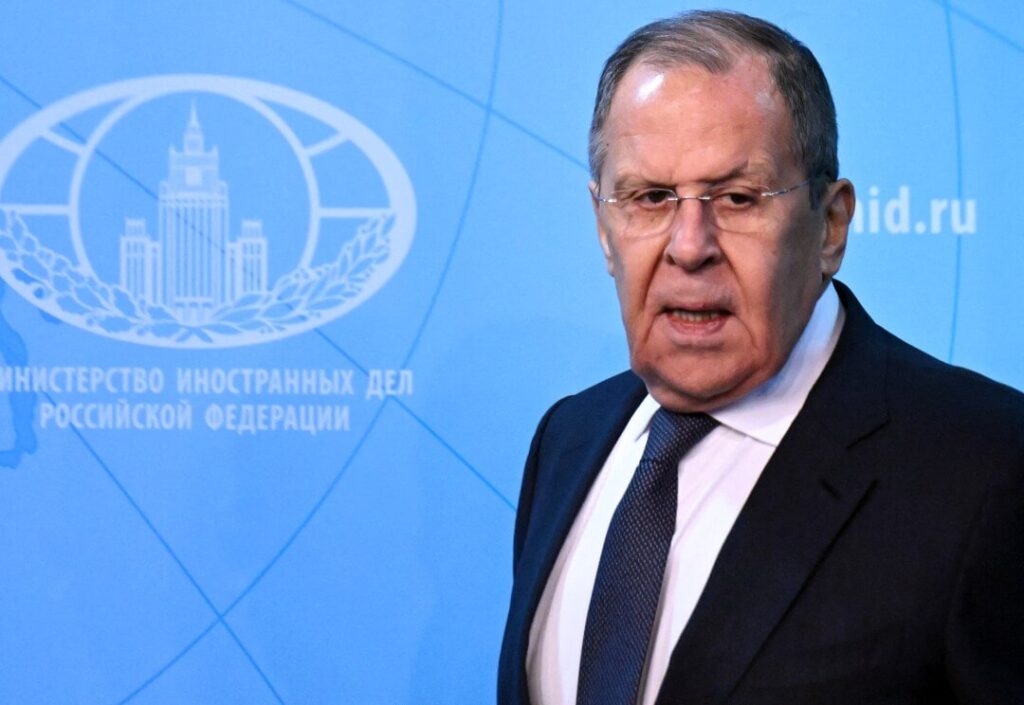Russian Foreign Minister Sergey Lavrov on Tuesday accused the United States of planning to sabotage the TurkStream gas pipeline, which carries Russian gas to Europe via Turkey, the state-run Anadolu news agency reported.
Lavrov, speaking at his annual end-of-year press conference at Russian Foreign Ministry headquarters in Moscow on Tuesday, claimed that Washington is encouraging terrorist attacks on his country’s energy infrastructure and has plans to target TurkStream.
“The US does not tolerate competition in any sphere, including energy. They are recklessly endorsing terrorist activities aimed at undermining the energy stability of the European Union,” Lavrov said.
“They are encouraging their Ukrainian proxies to disable TurkStream following the sabotage of Nord Stream,” he added.
Moscow accused US-backed Ukrainian agents of sabotaging Nord Stream, a pipeline beneath the Baltic Sea that blew up in September 2022.
Lavrov’s statements came a day after the Russian Defense Ministry accused Kyiv of launching a drone attack on the TurkStream gas pipeline infrastructure.
“On January 11, the Kyiv regime, in order to cut off gas supplies to European countries, attempted an attack with nine drones,” on a gas compressor station in southern Russia that supplies the TurkStream pipeline, Moscow’s defense ministry said in a statement.
It said all the drones were shot down, with the falling debris causing “minor damage” to a building and equipment at a gas measuring station.
TurkStream, which runs from Russia under the Black Sea to Turkey and then up through the Balkans, is the last active pipeline carrying Russian gas to Europe.
It runs 930 kilometers under the Black Sea and has an annual capacity of 31.5 billion cubic meters.
Ukraine halted the transit of Russian gas on January 1, which had for decades been the main route for shipping Russian supplies to Europe.
The 27-member EU has been reducing its dependence on Russian gas since Moscow launched its full-scale military offensive on Ukraine in February 2022.
Despite the fact that imports of pipeline gas have fallen, several European countries have increased their purchase of Russian liquefied natural gas (LNG), which is transported by sea.

